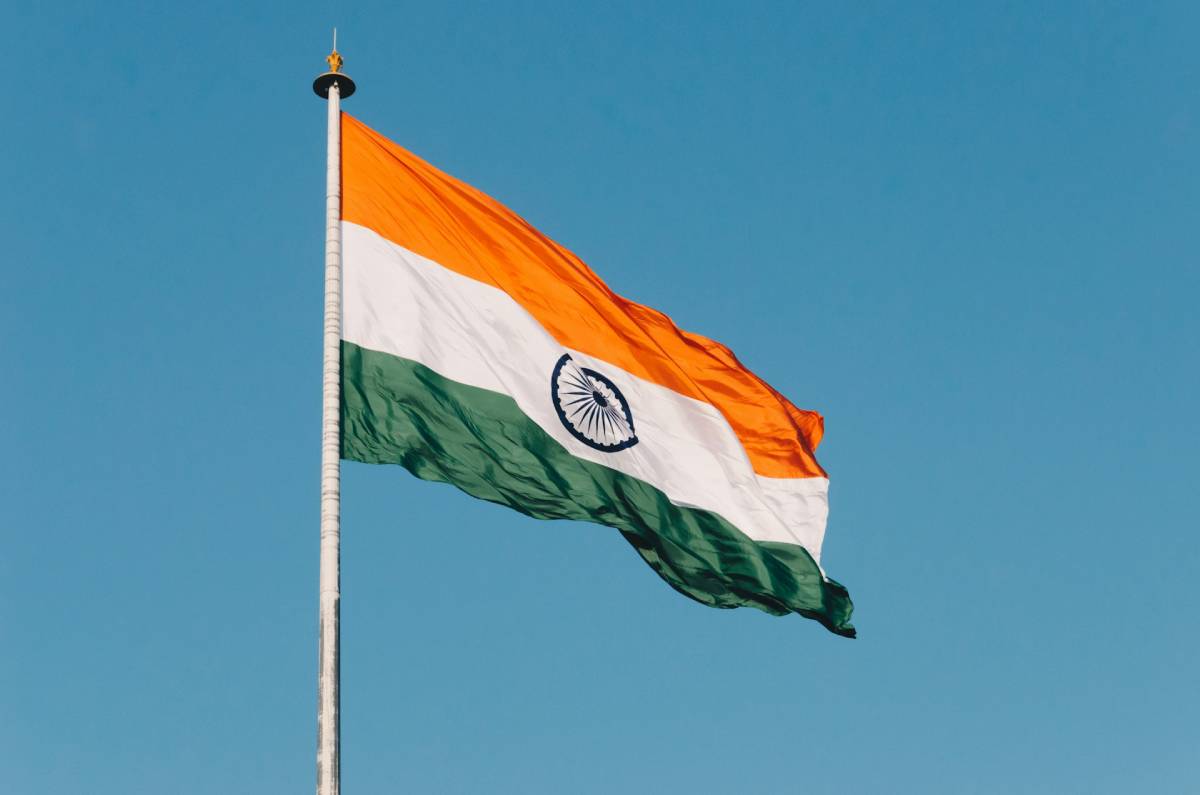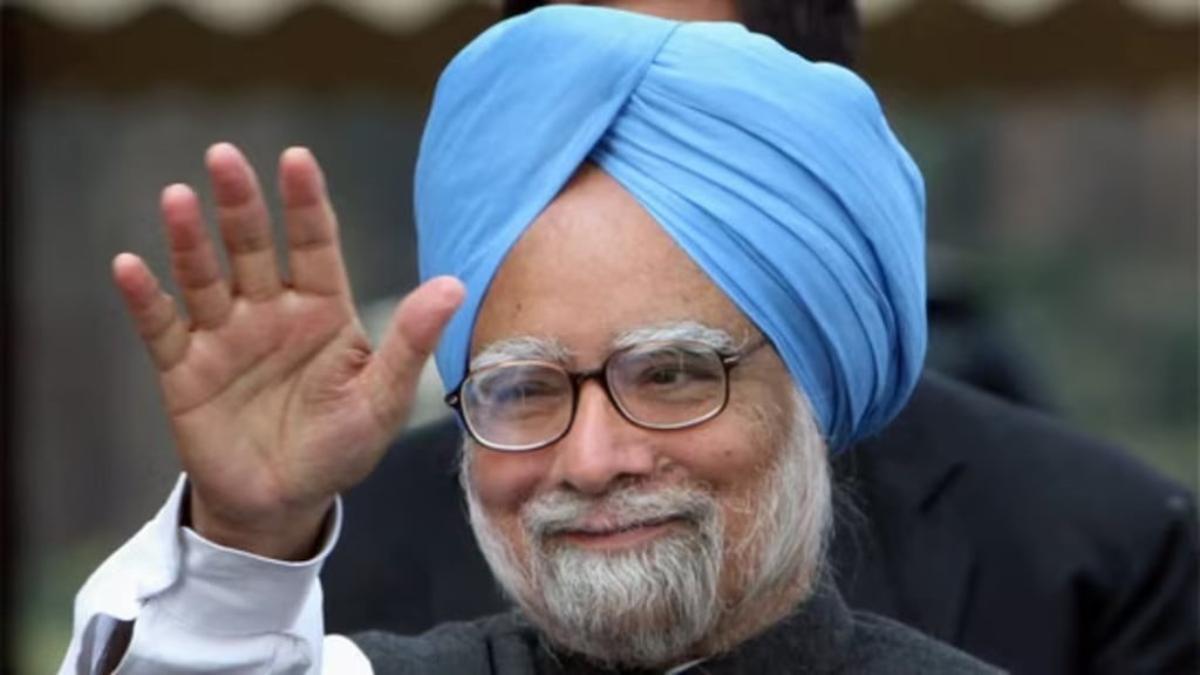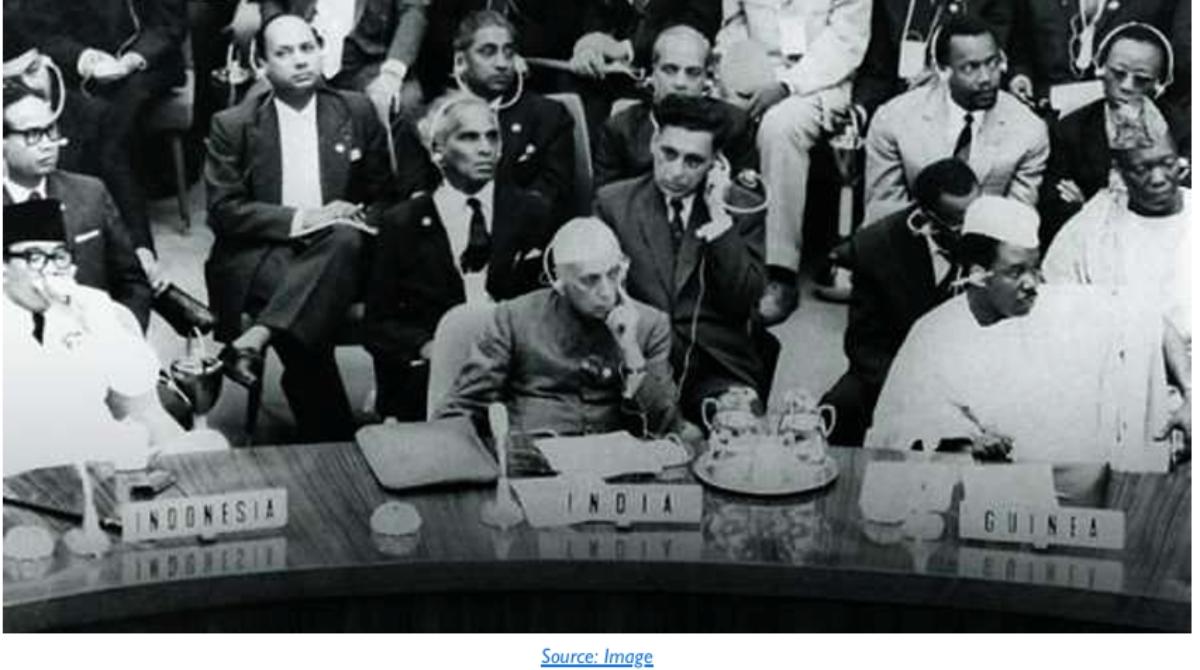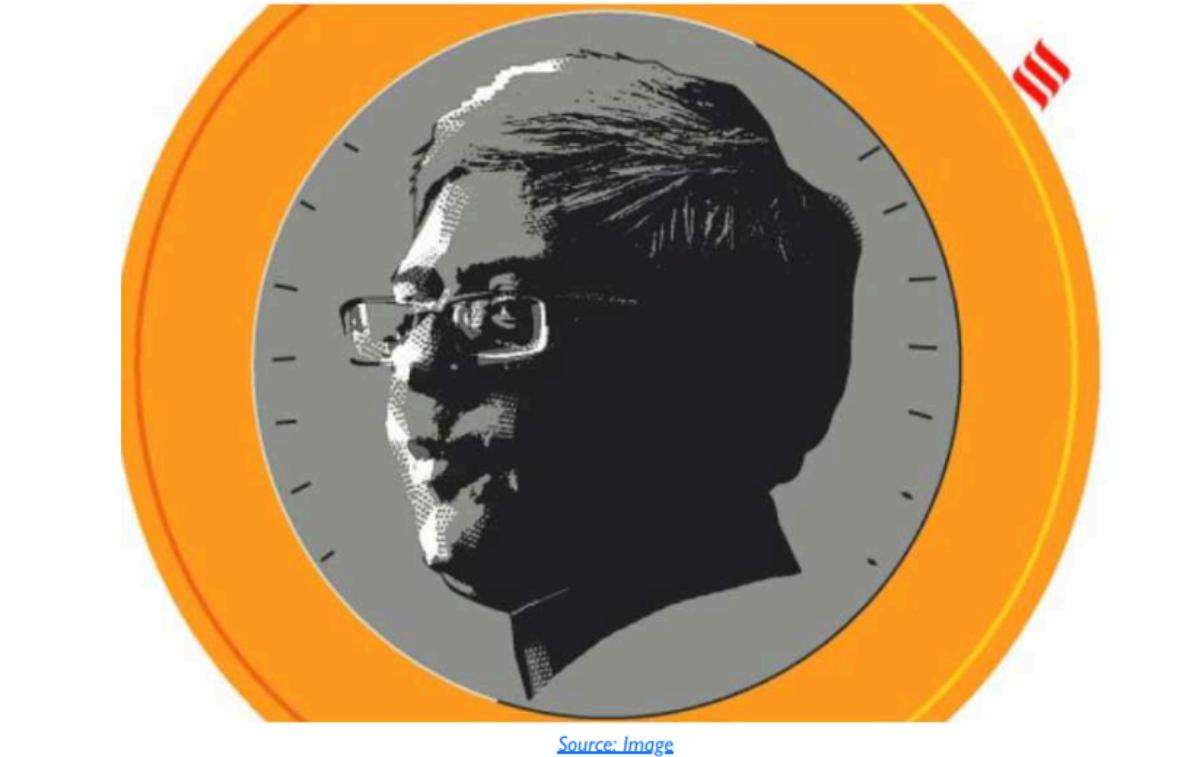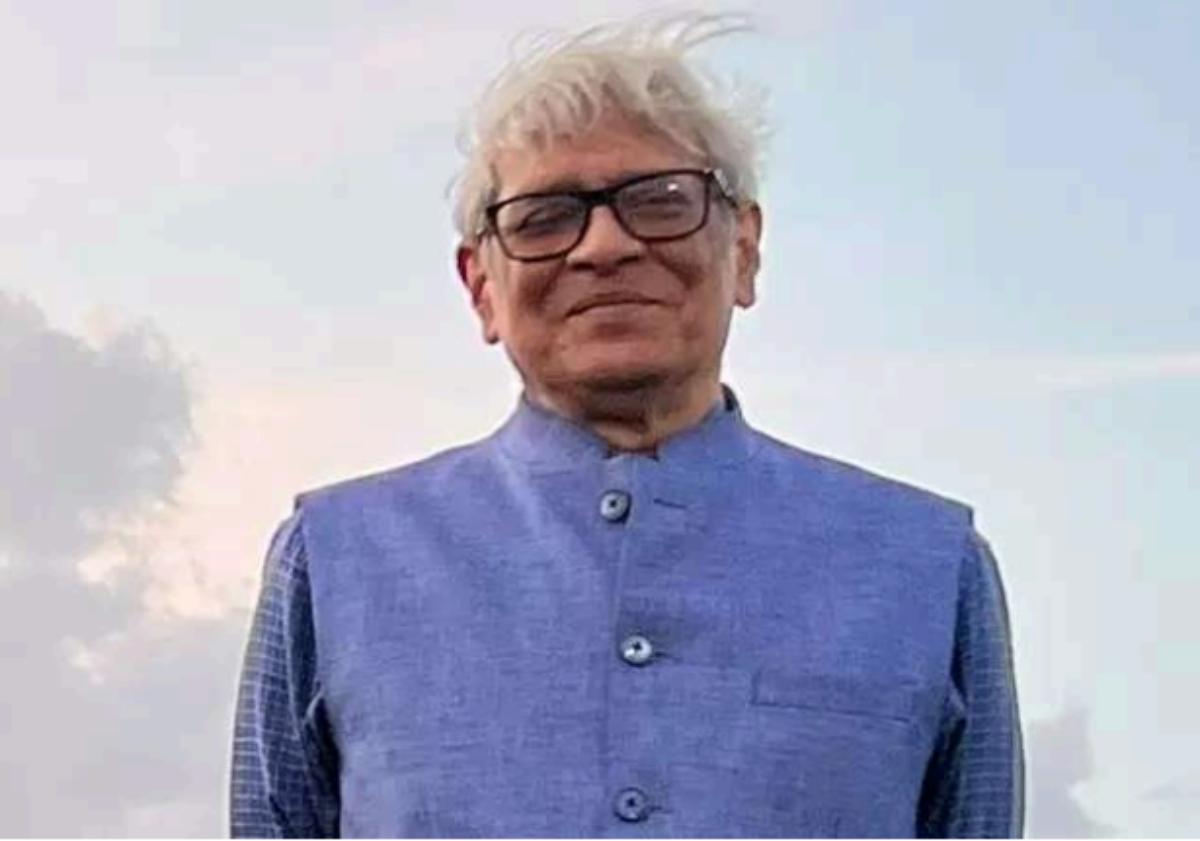Introduction
On June 10, Narendra Modi invoked the Constitution of India as he took his oath as the Prime Minister.
The election campaign for the 18th Lok Sabha was a long one that started before the first phase of polling on April 19.
It was a bitterly fought campaign, with political parties hurling accusations, barbs and pointing out substantive issues.
The campaign was said to have many heroes: BJP’s Narendra Modi, Congress’s Rahul Gandhi, Samajwadi Party’s Akhilesh Yadav, Lok Janshakti Party’s Chirag Paswan, and Telugu Desam Party’s Chandrababu Naidu.
But, the biggest hero of this election campaign was not a person. It was a book that spells out the vision for the people of India, to build a society based on equality, liberty, justice and fraternity.
A book that lays down the structure of government, the roles of different duty bearers. It also defines the role of elections and the Election Commissioner.
The hero of this election was the Constitution of India. Never before, in any election of recall, was the Constitution so much at the centre of public and political debate.
What Google search trends indicate
The heightened interest in the Constitution during the election months shows up clearly in Google search trends.
Data from May 2024 shows that average monthly searches for the term Indian Constitution increased 900% over the three previous months.
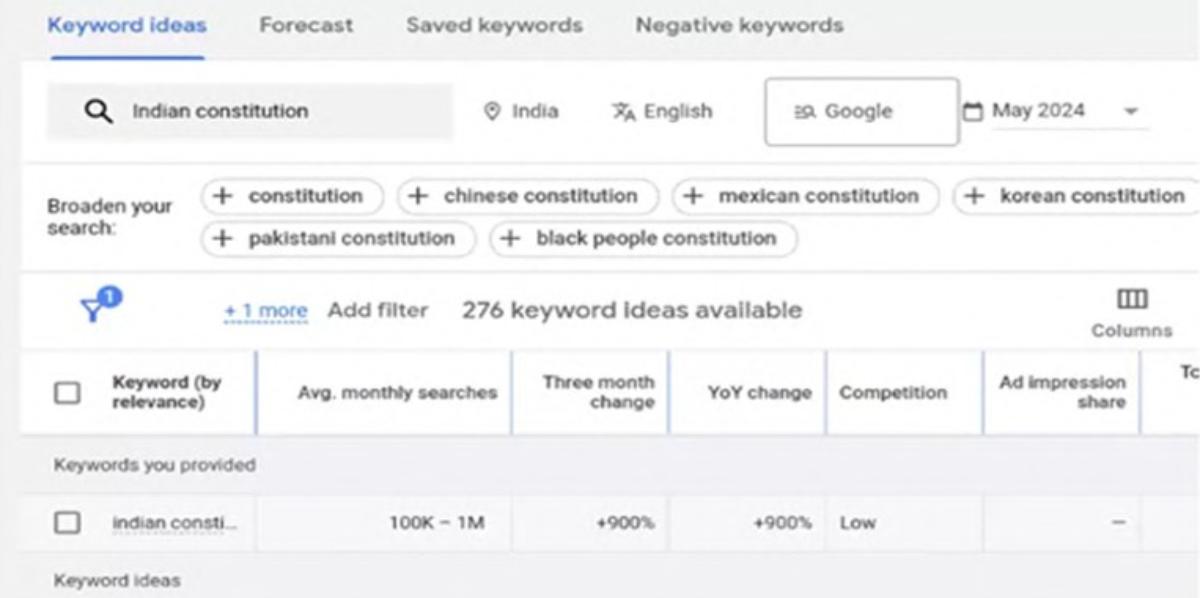
Even more interestingly, on the day of the results day on June 4, Google searches for ‘Indian Constitution’ peaked. No such activity was evident on the day of the results of the 2019 national election.
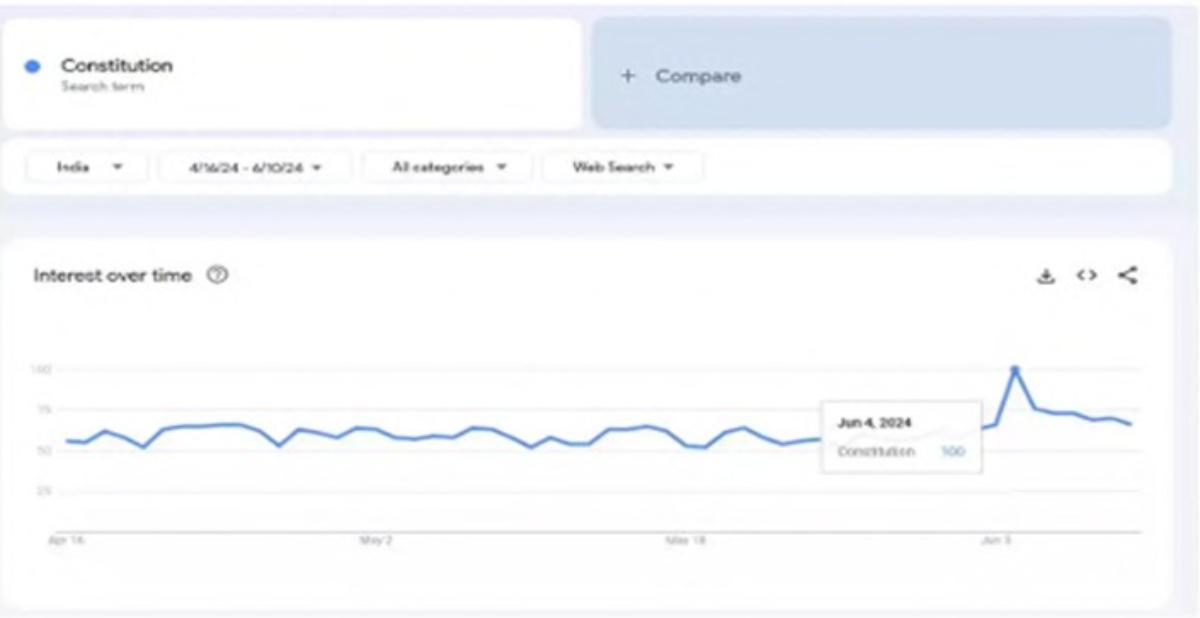
This shows a remarkable increase of awareness during these elections of the link between the Indian constitution, elections and the overall democratic process.
No such activity was evident on the day of the results of the 2019 national election, as can be seen from the Google trends diagram below:
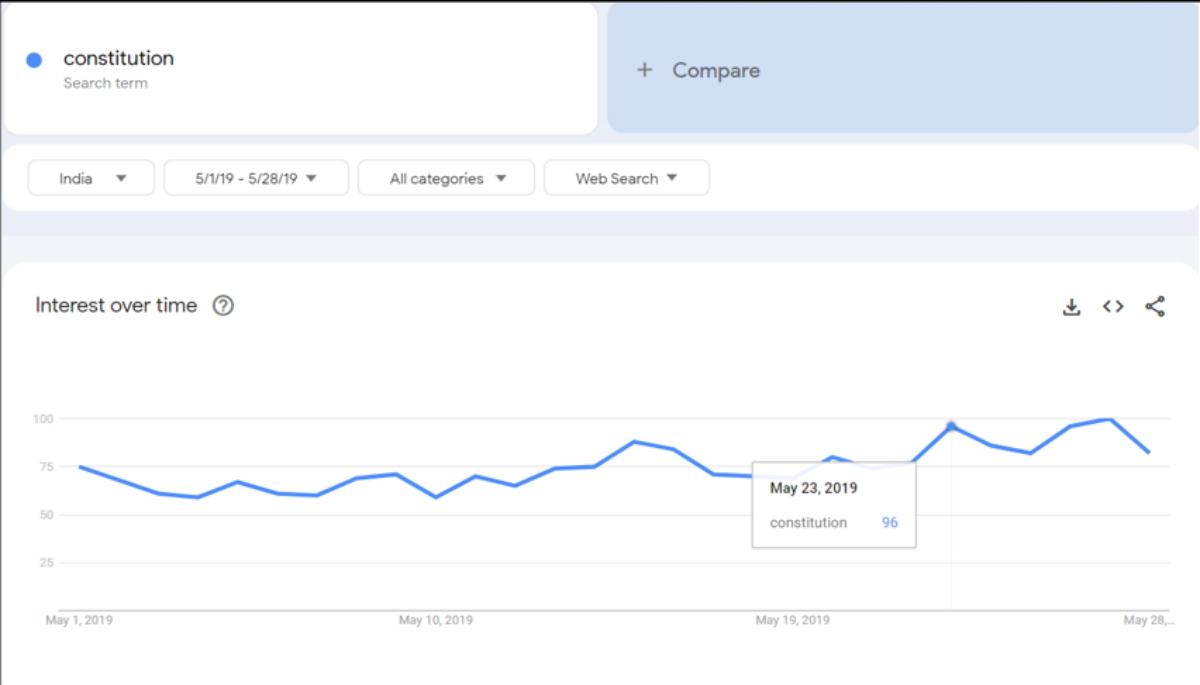
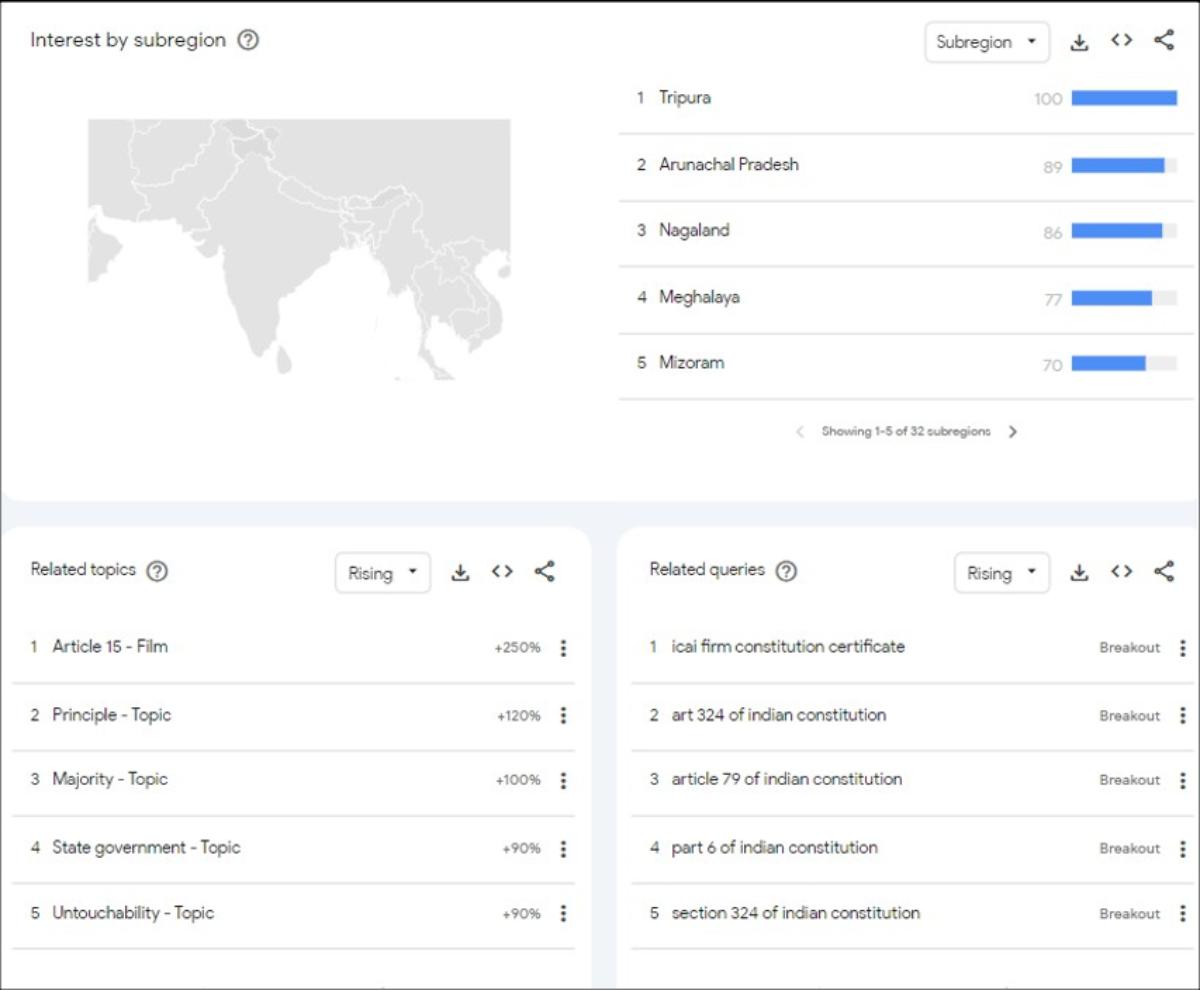
What Parties’ Manifestos Showed
A quick study of the manifestos of a few different parties shows that the CPI(M) mentions the Constitution in their document 50 times – which is nearly the number of pages in their 65-page document. The Congress manifesto mentions it 35 times, while the TMC mentions it eight times.
The BJP manifesto mentioned it twice.
What Was said on the Campaign Trail
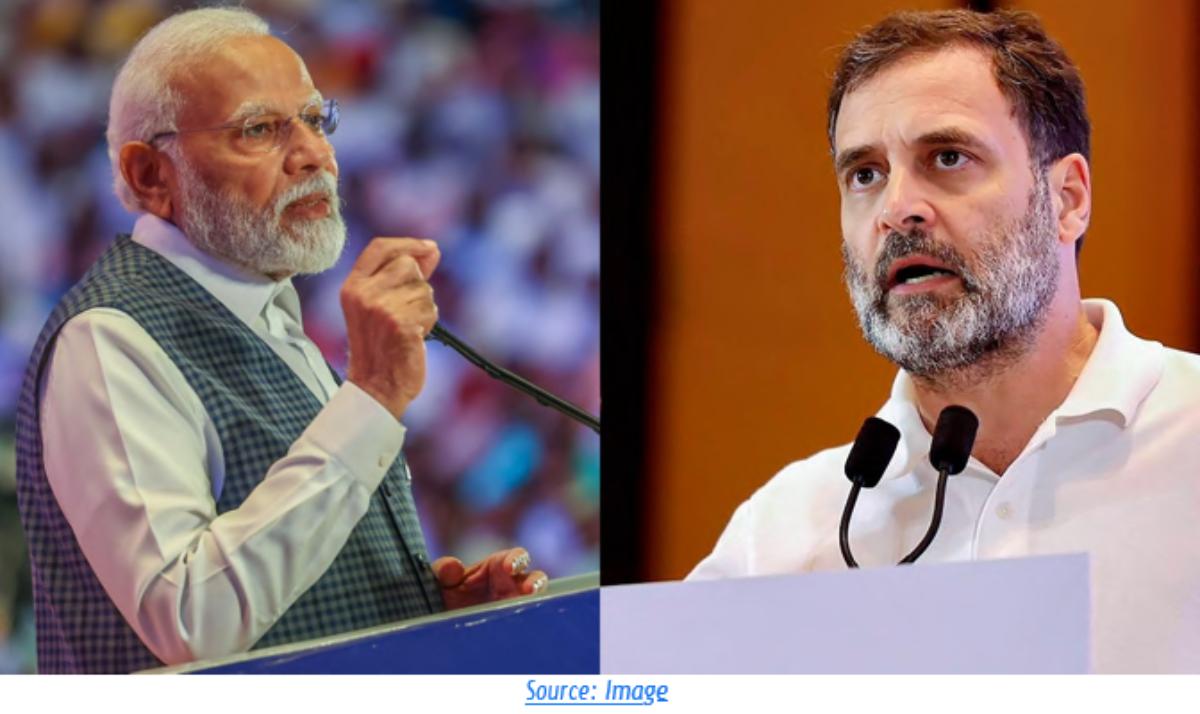
A review of the speeches that Narendra Modi and Rahul Gandhi gave after the election results are also indicative of the importance both of them gave to the Constitution.
“Our Constitution is our guiding light..We are very grateful to the people. The people of the country have reaffirmed their faith in the BJP and the NDA. Today’s victory is the victory of the world’s biggest democracy, a victory of faith in the country’s Constitution, a victory of the ‘Sabka Sath, Sabka Vikas’ mantra, and a victory of 1.4 billion Indians,” Modi said.
On the same day, Gandhi held up a copy of the Constitution, and said, “Isko bachane ka kaam, Hindustan ke sabse gareeb logon ne kiya hai, mazdooron ne kara hai, kisaano ne kara hai, dalito ne kiya hai, adivasiyo ne kiya hai, inhone is Constitution ko bachaya hai. Ye Constitution Desh ki Awaaz hai! (The work of saving this has been done by India’s poorest, labourers, farmers, Dalits and Adivasis. They have saved the Constitution. The Constitution is India’s voice.)”
But it wasn’t just the day of the results, speeches revolved around the Constitution right from the start of the campaign.
Facing intense accusations from the Opposition that the BJP planned to change the Constitution if voted to power, the Prime Minister had responded at a rally in Barmer on April 17.
“The Constitution of the country is everything for the (BJP) government and even if Babasaheb Ambedkar himself comes, he cannot abolish the Constitution,” he said in an impassioned speech.
The Role it May Have Played in UP
Interestingly, several reports from the ground in Uttar Pradesh in May had pointed out that the talk about the Constitution had struck a real chord with people.
The early cry of the BJP – 400 paar (beyond 400 seats) – was used by the SP and BSP to warn about the dangers of the BJP changing the Constitution if they gained such a dramatic majority.
In reality, there was no such indication, with the PM even reiterating that his party stood by the Constitution. But the fear that such a thing could happen was enough to galvanise public discussions.
“Samvidhan ko bachaana hai (Save the Constitution)” – was a cry that seemed to echo in chaupals, chai shops and homes. Perhaps it was a factor in the results that showed up in UP.
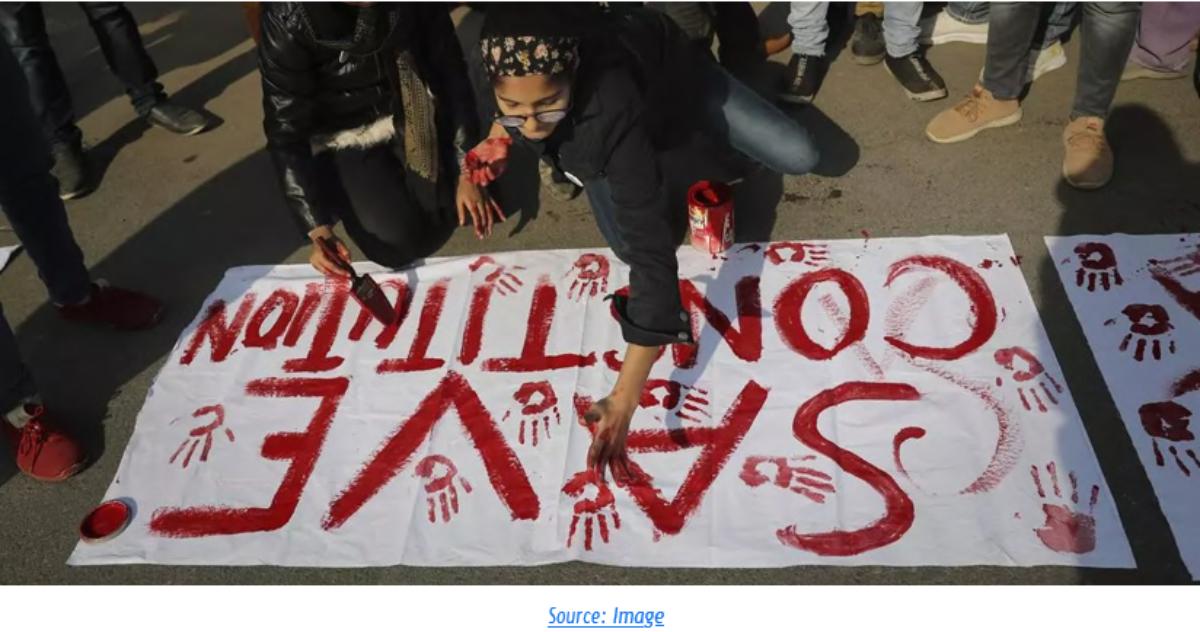
Why it Struck a Chord with the Masses
What could be the Constitutional values that were at stake here? A critical one was choice. Democracy and elections are, at the very basic, a matter of exercising choice. This is a simple principle of the Constitution, intuitively and deeply grasped by people.
The 400 paar slogan, seemed to suggest – even proclaim – that the voter did not need to think any more, that the choice was somehow made already. Contrast this with the “Taanashahi roko, Samvidhan Bachao (End dictatorship, Save the Constitution)” theme of speeches by several leaders of the INDIA bloc.
The scenario that, if in fact BJP does get 400 seats, democratic choices would become irretrievably restricted, perhaps activated an agency and urgency to choose.
The other important value was the protection of rights. The Constitution is, consciously or unconsciously, perceived as a guarantor of rights for everyone. For marginalised and minority groups, the protections accorded by the Constitution for different languages, religions and social marginalisations are seen as critical to their identity.
The fear that an overwhelming majority would give the BJP the powers to amend the Constitution and take away these protections, could have driven Dalit and Muslim voters away from the NDA alliance and into the arms of the INDIA bloc.
The moot point of importance is that the Constitution emerged as a significant talking point as never before. People debated the values we stand for as a nation, evaluated the performance of political parties through the lens of what the Constitution says – or intends – on a particular matter, and articulated their struggles in the language of the Constitution.
This is an enormous achievement for a democratic country as young as India. It is a huge step in democratic education – which perhaps starts with school books but gets practised in the heat and dust of the villages and cities of India.
Finally, it is a massive celebration of the people of India who, whether educated or not, can instinctively understand the democratic values that our nation stands for.
The author is the Managing Trustee of We, The People Abhiyan, a NGO dedicated to empowering citizens through constitutional awareness.
This article originally appeared in the Times of India on Jun 22, 2024, and is being re-published here with acknowledgment and gratitude.
https://timesofindia.indiatimes.com/india/the-biggest-hero-of-this-election-campaign-is-not-a-person-it- is-/articleshow/111134709.cms



